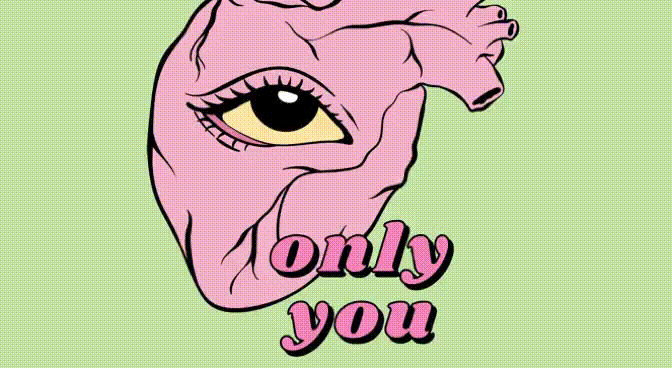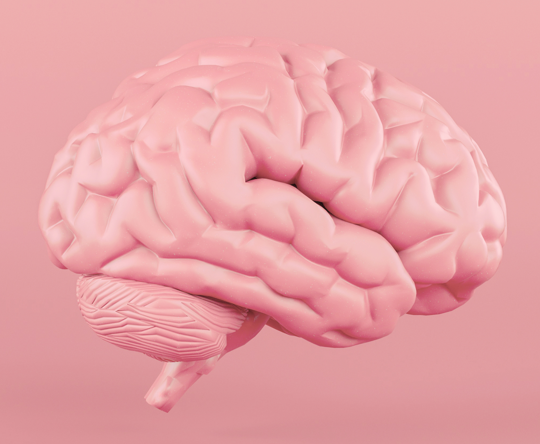The eyes are one of the organs that carry the greatest emotional power, they are our window into the world. That is why it is important to take care of them
According to an estimate by the World Health Organization, out of the 2.2 billion people in the world who have an eye disease, for at least a billion of them the disease could have been prevented. Eyes help us detect different diseases — they can exhibit symptoms of diabetes, high blood pressure or rheumatic diseases. In addition to aging and genetic predispositions, eye health is affected by many other factors we have control over ourselves, thus preventing disease and improving our health. This is why ophthalmologists, neurologists, endocrinologists, psychiatrists, rheumatologists, otorhinolaryngologists, plastic surgeons, general practitioners, pharmacists and engineers are brought together at X-Lab — the expert research hub by JGL — to analyse the latest research and, by applying a holistic approach, to share with us how to take care of our eye health and why that is important not just for our whole bodies, but also our psyche.
We receive as much as 90 percent of the information from our surrounding environment through our eyes, and at the same time our eyes reveal a lot about us to the people surrounding us. The eyes carry an incredible amount of complex social and emotional information. The research looking into the connection between the eyes, the neurological and the psychological systems has found that the way we see and look can reveal some segments of our personality and that the eyes can reveal our current mental state. However, scientists have debunked the theory that eyes tell when we’re lying. The research experiment has not established a link between eye movement and telling lies, so we can conclude that it is not true that we are hiding something if we are avoiding someone’s look, looking up or looking to the side.
Are the eyes the window to the soul? What is the connection between the psyche and the eyes? Why is eye health important for our self-esteem? What part do the eyes play in everyday communication? Croatian psychiatrist and head of the Department of Psychiatry and Psychological Medicine at the University Hospital Centre Zagreb, Professor Darko Marčinko, MD, analyses these questions for X-Lab by JGL.
1 What part do the eyes play in interpersonal communication?
The eyes are one of the basic premises for establishing contact between people. They are one of the organs that carry the greatest emotional power, which gives them a strong potential for communication. Eye expressions are extremely important for recognizing subtle messages during communication, like the emotional states of others and of oneself, and they also help recognize and interpret subliminal messages. It is a little-known fact that eye expressions are the foundation of optimal mentalization, the process by which we perceive our own psychological mechanisms from the outside, through metaposition, and the other person from the position of their inner reality. Eye diseases can hinder the communication with the surrounding environment, so they also have psychological implications. When visual function is reduced or when vision is lost, other forms of communication are activated, which a person has yet to develop.
Unlike some other organs that are hidden, such as the kidneys or the liver, the eyes are constantly the focus of attention, and our inner psychic impression of the eyes is therefore much more pronounced than for some other organs of the body. Many emotions are expressed through the eyes. One of the strongest ways to express emotions, both sadness and joy, are tears, which also feature the eyes. The eyes are our window into the world and that is why it is important to take care of them — eye health contributes to our mental harmony.
2 Is there a connection between difficult emotions, such as shame, and eye health?
There is a well-known saying that “the eyes are the window to the soul”, but the truth is, in fact, they are much more than that. If there is a notable eye health problem, a person may resort to psychological defence mechanisms such as withdrawal, avoidance, and relocation, when they move heavy emotional content to another level, which they find less painful. The discomfort created by the eye problem can also lead to social withdrawal, and if such behaviours last, an underlying emotion of shame in its ugly, debilitating form may develop. We establish contact with our surrounding environment through our eyes, and shame pushes us to hide from view. This can lead to a sharp drop in self-esteem.
Conclusions from psychodynamic research stress the importance of distinguishing between the emotion of shame and the emotion of guilt. Shame tends to translate over the visual — an example is redness in the face as a side effect — while guilt tends to translate over the auditory to a greater degree. According to the psychodynamic formulation, shame is more difficult than guilt because it affects the complete personality, while guilt is related to behaviour, so the complete personality is not affected. The fact that eye diseases can be associated with shame indicates clear negative consequences eye diseases can have for the psyche.
3 How are eyes related to fears and is it true that our eyes get bigger when we are afraid?
The Croatian saying “Fear has big eyes” — meaning our eyes get bigger when we are afraid — reflects the physiological, natural response from the eyes to the experience of fear.
The neuroscientist Joseph E. LeDoux has described the importance of the interaction of the pathways in the brain for our emotional functioning in his book The Emotional Brain and a series of papers. Some of information about fear comes through the eyes. Sensations of fear, which are based on external threat factors, are transmitted from the eye level to the level of specially organized brain structures such as the thalamus. Sensory information travels further in two directions. The lower direction is the one towards the amygdala region, the part of the brain responsible for expressing strong emotions and anxiety, and the upper direction is the one towards the frontal regions of the brain. Just as there are two pathways, the lower one (faster, subcortical) and the upper one (slower, cortical), there are opposing parts of the psyche in the form of the unconscious and the conscious.
It is this difference in the speed on the pathways in the brain that is important in explaining the reaction to an external threat. The ultimate form of fear is called flooding and is characterized by a deep feeling of discomfort, which is then also reflected in altered visual function. Therefore, relaxation techniques are used to reduce difficult inner feelings which are closely related to bodily functions such as eye expressions and visual function.
4 Do we have more conscious or unconscious reactions?
The relationship between the conscious and the unconscious reflects the fundamental polarization in the human psyche, the eternal struggle that makes life full of challenges and is often unpredictable (a reflection of the domination of the unconscious). The amygdala is essential for assessing external danger, and given the high speed of information processing (relative to cortical structures), it sends information about danger before the conscious part of the psyche recognizes it. Before we even understand the essence of danger, our body responds with hormonal responses and bodily reactions that serve to defend against external stress and threat. When the danger passes, the body and the psyche return to their original state. If the stress stimulus is constant and present for a longer period of time, the body becomes exhausted, both physically and mentally. High-intensity chronic stress creates a predisposition for so-called. psychosomatic reactions, and health becomes severely impaired.
The coordination of communication paths between the amygdala and the prefrontal cortex creates the conditions for reducing fears and anxiety and supporting psychological stability. The role of the amygdala is regulated by another brain structure, the hippocampus. Chronic stress damages the hippocampus — reduces its size — by weakening the regulation of the amygdala, which then works excessively and creates the perfect environment for high levels of anxiety to develop.
In the context of experiencing fear and anxiety eyes are very important because they reflect the emotional states by sending a message to the surrounding environment. Mental calmness is manifested through a calm gaze, while a fear that is out of control directly affects the facial expressions, which become altered and reflect a state of mental restlessness. The eyes and the psyche are two interconnected systems and when they are in harmony, our view of the future is relaxed, both in the real, physical sense and symbolically (psychologically).
5 How can we maintain good eye health and good mental health at the same time?
The eyes need light to function properly, and psychologically light symbolizes consciousness. Only a full experience provides the foundation for optimal health. In these modern times when life really is fast-paced, we should take care not to become fragmented in assessing the important things in life, such as health. If we place emphasis on only a narrow segment of our mental or bodily functions, we can easily neglect the integrity and completeness of ourselves as human beings. Through lifelong learning processes we can broaden our horizons and fight against the fragmented approach that can become detrimental to our health.
6 How do you recommend we take care of our mental health?
• Encourage a sense of gratitude in ourselves for all the good things we have — gratitude, which carries a positive sign, helps us cope with everyday stress and problems which carry a negative sign.
• Keep in mind that health has a physical, mental, social and spiritual component; our notion of health should be holistic; not fragmented — health includes the harmony and resonance of all essential elements of human existence.
• Communication with people close to us is very important — we need to work on strengthening empathy and deepening understanding of others and reducing moralizing when it comes to other people’s problems and even ourselves.
• We should try to turn difficult emotions or problems into thoughts — this gives them additional symbolic meaning, which then opens up the way to make those difficult emotions or problems smaller.
• The laws of nature are the same for all people — health means finding that balance that nature and its laws carry within them, it means working on the balance of the conscious and the unconscious, and on the harmony of the physical with the other parts of our personality.
• Rest is essential for mental harmony — the hectic pace of life in our Western culture often does not allow enough time between important life events for intellectual reflection and psychological processing of experiences, and the psyche keeps track of everything and enforces damages through different symptoms.
• The subjective experience of oneself and of others should not be diminished — it affects our objective reality significantly.
QUIZ
SUFFERING FROM DRY EYE SYNDROME? ANSWER THESE QUESTIONS AND FIND OUT HOW TO PREVENT IT AND WHAT TO DO WHEN YOU ARE ALREADY FEELING THE SYMPTOMS
QUIZ





